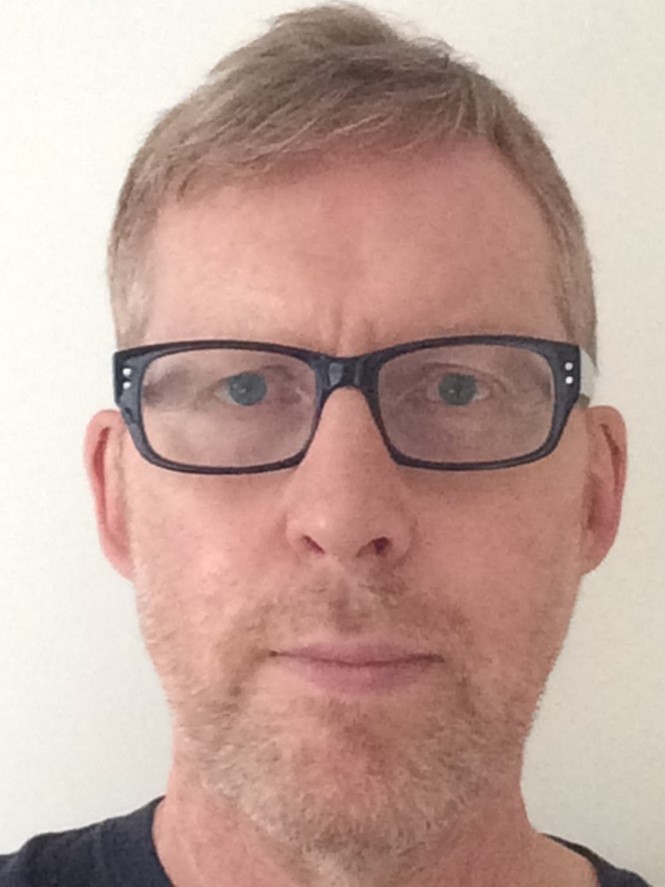
Where are they now: in conversation with Paul Mills

Paul Mills (he/him) is a psychotherapist for children, young people and families at First Step and Open Door. Paul studied Perinatal, child, adolescent and family work: a psychoanalytic observational approach (M7), and then went on to study Psychological therapies with children, young people and families (M34).
Paul came to psychotherapy a bit later in life, reflecting on his journey he shares: ”I was sort of a feckless youth or eternal student and did a variety of jobs: I was a care worker in my twenties; then I drove a bus for disabled people, called a Dial-a-Ride bus; I then trained to be a primary school teacher when I was about thirty and have spent much of my career teaching. I was also an inclusion leader or special needs coordinator, mostly in Tower Hamlets, in East London. I had a few diversions; I trained to be a journalist at one point, and worked on the Barking and Dagenham Post, I wrote a comedy script with a friend, which didn’t go anywhere. There was a yearning to do something different. So around 2003, I started doing M7 with a view to training as a child and adolescent psychotherapist, and then my daughter came along and she wasn’t well for a bit at the start. I had to go back to work as a teacher, and then had another child. So, it wasn’t until about four or five years ago that I was able to think about retraining further and actually qualifying as a psychotherapist. That’s when I started M34 and qualified in 2021.”
Since qualifying, Paul has been working at First Step, a Tavistock service, and Open Door, both in Haringey. “My work with Open Door, which I’ve found a very supportive place to start working as a therapist, is one-to-one psychotherapy with young people, whereas First Step is a little bit different to that. It’s a small, lovely, multidisciplinary team with therapeutically-informed social workers, a psychologist, a family therapist, a CAMHS clinician and myself as a psychotherapist. We support the emotional wellbeing of children in care, and the networks around them, by offering reflective spaces to social workers, foster carers, schools, other professionals, sometimes even their birth families. Sometimes there are opportunities to work directly with children and young people, which is perhaps the bit I enjoy most. I’m really starting out at quite an advanced age to do something different, so I feel like a beginner in what I’m doing. I think the work I did in schools, which was with children and with families, often in areas of deprivation, did prepare me quite well.
“Having worked with primary school age children, I imagined I’d be more interested and find it easier to work with younger children, but I really enjoy working with adolescents at Open Door. I find them really fascinating and it feels really lucky as someone in their late fifties to be connected to the thoughts, the mental space, of young people and finding out what their issues are and trying to help them. Adolescents can tell you when you’re going wrong; if I’m on the wrong track they’ll tell me and there’s something reassuring about that. They have a capacity to be really articulate about their difficulties and have an engaging, thoughtful, conversation or exchange about things they’re experiencing. It’s introducing me to issues and realms which otherwise I probably wouldn’t have a lot of experience of, or may not be so understanding of. For example, gender identity, sexuality, neurodiversity, and meeting people from a variety of backgrounds and therefore understanding the realities that they’re struggling with, which might be very different to mine or my background. All of these things I feel very fortunate to have a window into.”
On starting on a new path and the experience of studying after working in other roles Paul said: “Having become relatively experienced and had a sense of being good at what I was doing before, it gave me a professional confidence that I could do a good job. That enabled me to start something different, that was quite challenging, and at times scary. I was really nervous for the first few sessions I ever had one-to-one in a room with a young person. My previous experience helped carry me through that first kind of uncertainty; I thought, I will be okay. I’m just learning something new and I’ve done that before, so I could enjoy the excitement.
“I loved being a student. It’s great to learn new things and there was a lot of really interesting material on the course. M7 was a long time ago, what has stuck in my memory is encountering theory that I didn’t have much familiarity with; the basis of psychoanalysis, child development and so on. In particular, the experiences of infant and young child observation. It was such a privilege to go into someone’s home once a week for an hour and watch them with their baby. And then to write about that or to think about it in the light of child development, and the psychoanalytic theory, that was really interesting.
“M34 is much fresher in my mind, what I found really good about the M34 course was the breadth of the material that it covered. Obviously Freud and Klein were central, but it also ranged into other areas perhaps not covered so much on other courses. So I felt like I had a really good basis to read further off the back of what I was introduced to. There was a workshop I attended in the first year which profoundly affected how I thought about myself and my life outside of the course, but also the course itself and working with young people: ‘Difference, identity and diversity’. It gave exposure to different ways of thinking in the context of the range of experiences that one might have with young people from all sorts of backgrounds and was really helpful. The theory was taught very well and I had some really good placements as a practical element; I was embedded in a clinical team in Hackney social care and then I had a very good experience in a family mental health team in my last year. There was quite a wide range of ages on the course, it is interesting to meet people at different stages of their life and study with them. In a way it would be good to still be studying. I feel like I haven’t got so much time to read, and you lose reading with other people, or discussing with other people, I miss that.”
“One idea I have carried with me since studying was that of the life-giver by Neville Symington. That’s what I think about it terms of the courses and the therapy. You take something from it that’s kind of life-giving, and I feel really lucky at my point in life, finally, to have got somewhere that I was aiming to get to for quite a long time; it took me a long time to get here. Now it feels like it’s giving me life, it’s sort of sustaining me. It’s nice to feel energised, when you’re my age, about starting out, learning. I also feel really lucky that it seems to be going relatively well. Young people come back, mostly, week-on-week to talk with me, and seem to be making progress as a result, so there must be something they’re getting out of it. That’s a really good feeling, helping them, that’s the hopeful part, that you’re making a difference.”
When asked about next steps and hopes for the future Paul said: “I’m still at the outset and it feels like I’ve got a great variety in my week; I have one-to-one, face-to-face work with young people of different ages, and online consultation work, and am part of two quite different, multidisciplinary teams, in different environments. Open Door is in an old townhouse in Crouch End and I feel really fortunate to have a post at the Tavistock. So, I guess I’m just doing what I’m doing for the time being, without a grand vision. Although, I hope I might work a little bit less when I reach the age that people might start thinking about retiring. I would like to do a mixture of work that is paid well enough to enable me to do some sort of free work. It’s really important to me that psychotherapy is available to everybody. It feels very wrong that access to psychotherapy has sometimes been quite an exclusive privilege.”
Beyond his career, Paul also has varied interests and ambitions: “I really like electronic music. I go out to listen to a lot of music and like going to music festivals. That might be one of my retirement projects, to open up a kind of club night for OAPs or learn to DJ! I used to love playing sports, unfortunately I’ve had to stop playing football due to the rigors on the body, but I still like cycling and do it at the weekends when I have time. So I am a middle-aged man in Lycra, but I’m not sure why that’s an insult. I think that should be positive really, if you can keep fit at my age. I also enjoy walking in the countryside, in the hills and occasionally in the mountains. I also like reading when I can but think my attention span has been shortened by all sorts of things. I do need to work on that!